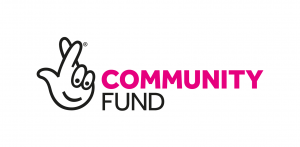History behind the Wiltshire Autism Hub
Pilot Project
WSUN (Wiltshire Service Users’ Network) was founded in 1991, Wiltshire Service Users’ Network was the first user led organisation in Wiltshire and one of the pioneering organisations in the country. It was formed by people who use health and social services, to promote user involvement and support people to have a voice.
In 2018 WSUN began working on a pilot project with a number of people on the spectrum. These people reached a crisis point in their lives and were overwhelmed by everything. Many were experiencing mental health issues caused by anxiety and depression as well as Autism. We worked with them on a one to one basis supporting and mentoring them with issues such as benefits, help to sustain their housing requirements as they were at risk of losing their homes, care packages, education, deprivation of liberty and navigating the system. We also worked with a number of agencies and organisations to help them understand the issues associated with the individuals and ensured greater understanding.
As a result of the findings from both the Wiltshire Autism Forum (which we previously supported) and from the pilot project an outline for the Wiltshire Autism Hub project was conceived. The idea was formed by local autistic people, and was led by them in partnership with WSUN’s Management Committee and staff.
We wanted to raise awareness that whilst there are aspects of having autism that cause difficulties for some people with the condition, there are many benefits to having it as well.
We wanted to improve the local offer for autistic people and their families, worked from a strengths-based perspective around supporting autistic people to live the lives they want to lead.
Identifying the need
Many Autistic adults feel like they receive little or no support from organisations within Wiltshire. The reasons for this are complex, and may include:
- Limited resources mean that many organisations have cut back or reduced available services;
- Many Autistic people manage to live independently for months or years, but can have occasional crisis points, particularly when reacting to external changes or stresses. This means that support needs can change drastically: a single assessment at one time may only show minimal support needs.
- Wiltshire Autism Diagnostic Service (WADS) supply an information package and assessment immediately after first diagnosis, but this is a single assessment and follow-up resources at present are limited.
- Several organisations can provide different types of crisis support. However, executive functioning issues mean that identifying and seeking support can be an overwhelming task without help.
- Many support organisations require some kind of initial assessment or interview; this kind of ‘open-ended’ unknown interview can be a barrier to seeking support.
- Many people with ASC are very uncomfortable and unsure in interview/assessment situations and can be highly vulnerable. This means that assessments can easily produce inaccurate results.
In January 2020 we were awarded three years funding by the National Lottery through the National Lottery Community Fund and the project officially started in January 2020. We have now been awarded an additional 3 years funding from April 2023.

Our autism training
A key finding of the Wiltshire Autism Forum meetings in 2016 and 2017 was the need for Autism Awareness training for key professionals in health and social care services, other organisations such as the voluntary sector and public services such as the police.
In Partnership with Wiltshire Council, Wiltshire Autism Diagnostic Services (WADS) and volunteers with Autism, WSUN ran a number of 1/2-day training courses for front-line staff. This course was developed and delivered in partnership with people with Autism to over 200 people in 2017/18.
WSUN now offers a basic 2-hour training session which gives an insight into Autism from a person with Autism’s perspective. This training is suitable for anyone who wants to know more about autism, the challenges that people may face and the ways in which we can support someone with Autism.
‘The fact that it was delivered by someone with first hand condition was amazing. He was insightful, intelligent and inspirational!
I particularly liked the way the content was structured. I have done a lot of autism training that has focused on things like the triad of impairment. This was done in a very different way that really gave an opportunity to empathise with people who are autistic.’ – Training delegates feedback
For more information about the training, contact Louise Rendle at WSUN.
